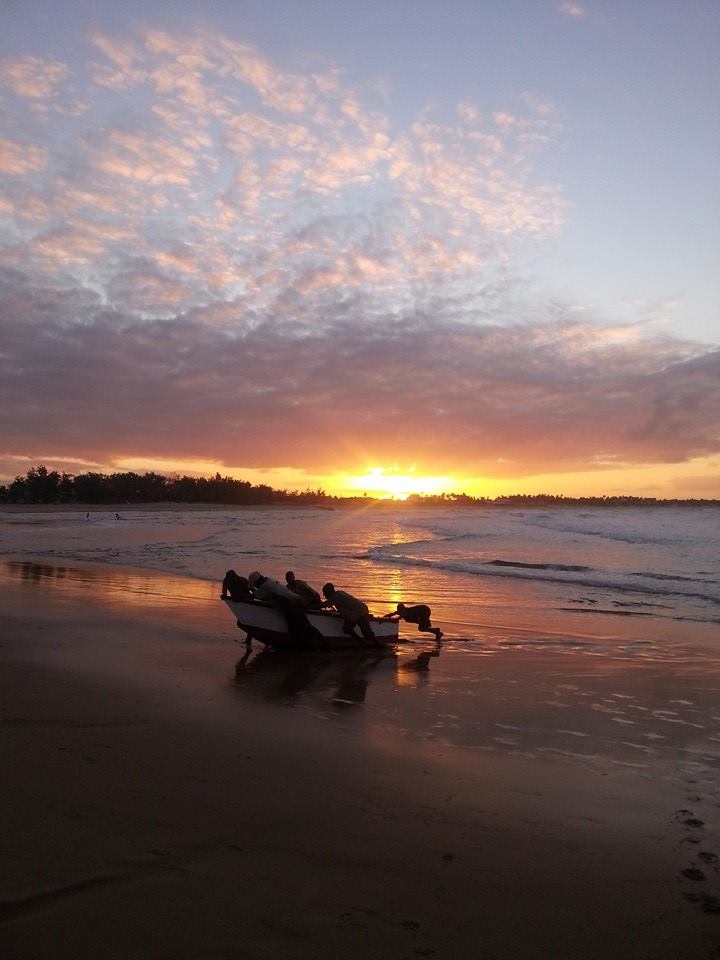If you want to awaken all humanity, then awaken all of yourself, if you want to eliminate the suffering in the world, then eliminate all that is negative in yourself. Truly the greatest gift you have to give is that of your own self-transformation.
Lao Tzu
Personal transformation can and does have global effects. As we go, so goes the world, for the world is us. The revolution that will save the world is ultimately a personal one.
Marianne Williamson
If we do not transform our pain, we will most assuredly transmit it.
Richard Rohr
This week, a new chapter in my working life has just begun. From 2016 onwards, I spent five years leading a venture which involved the founding, ramp-up, and establishment of a psychosomatic clinic for trauma and addiction in the vicinity of Berlin. Then, in the summer of 2021, I had an accident in which several vertebrae were fractured, resulting in me being laid up for many months.
This accident caused serious injuries which could easily have left me in a wheelchair for the rest of my life. Thankfully, this was not the case. With the wonderful moral and professional support provided me over the past thirteen months, the convalescence has been a full success. My physical fitness was formally confirmed by my medical team last week, allowing me to now embark on my new role as a Mental Fitness Trainer and Transformation Coach at my newly founded company, SoberOasis.
In a previous chapter of my working life, after almost twenty years in management in the corporate environment, I went freelance in 2004 as a Change Management Consultant, passing on to clients many of the excellent methodologies and techniques learned on the job during my years as an international manager in a leading-edge high-tech environment.
Now my focus is on transformation, not change. What is the difference between the two and why is transformation necessary for the attainment of our true potential? These questions are equally valid in the business and personal contexts, the two areas of focus at SoberOasis.
One of my major observations from this seven-year period in Change Management was the fact that, while training programmes did have an initial motivational effect on individuals, teams, and businesses, most of this new energy fizzled out quickly, within a matter of months, having been engulfed and neutralised by the general stress, chaos, and disharmony found in any typical business, community, or family. In the light of such sobering results, or lack thereof, I began to wonder how truly sustainable changes could be brought about.
Some of the answers were to be found in the last place I would have thought of looking. They resided within me. My own path of transformation was prompted by the recognition, in my early forties, that I had a progressive fatal disease, namely alcoholism. Upon reaching out for help in the recovery community, and finding it, the realisation slowly dawned on me that the solution to my problem lay not `out there´ in the cruel, unfair world, but within myself. Recovery was going to be an inside job.
As the process unfolded, it became clear that, while I initially blamed outer circumstances for my plight and the resulting misery, the only aspect I could really change was my own attitude. I could find the willingness to do what was necessary to increase the possibility of a transformation occurring, and then do my footwork, one day at a time.
It was a matter of identifying and owning my problem, (my powerlessness over alcohol), coming to believe that the problem could be solved by tapping into frequencies higher than those of the ego (the re-emergence of hope, and the birth of humility), followed by an inventory of my part in the generation of my misery (inventory).
This was followed by the willingness to let go of what the inventory showed was no longer of service to me in my life (old ideas; belief systems and behavioural patterns which were causing harm to myself and others), being willing to let go of them (by practicing the opposite), clearing away the wreckage of the past (making amends), and the ongoing cultivation of my contact with the higher frequencies within (prayer and meditation).
The last of the Twelve Steps begins with the words: `Having had a spiritual awakening as the results of these steps´ (those outlined above). That certainly seems to be a promise. We will experience a transformation if we learn to live by the principles outlined, and act accordingly. It goes on to state that: `we tried to carry this message to other(s)….. and to practice these principles in all our affairs´.
This dynamic draws upon what Richard Rohr once observed: `Transformed people, transform people.´
While we have many words which mean `to change a thing into a different thing,´ transform implies a major change of the essential nature of a thing as distinguished from its matter.
My life has been transformed in that I no longer blame myself, the world, its people, and circumstances for whatever challenges and setbacks which inevitably come my way as the days, week, and months unfold.
I see that my liberation lies in that split second between impulse and response, a gap which is oblivious to many of us before we begin our inner work. As we become mentally fit, learning to slow down, to ground, and to gather ourselves, the gap seems to become wider, affording us greater opportunity to consciously express our free will, in choosing how we respond.
Whether the morning sky is blue or grey is not my choice; my response is. Will it be rejection, resentment, or anger as opposed to gratitude, curiosity, or acceptance? These are some of the many choices within my remit.
Having to choose, having to respond (as opposed to react) can feel like a burden at first; as we get better at stepping up to our responsibility (our response) towards ourselves, others, and outer circumstances, we discover the power of this liberation, and the fact that, by means of our choices, we have indeed the capacity to choose our reality.
In the coaching context this is equally true. Many successful professionals require a deep internal crisis to discover that `the hamster wheel looks like a ladder only from the inside´. The question of the purpose of life raises its head and the never-ending hassle of trying unsuccessfully to reach ambitious goals as a leader is tackled in the context of self-leadership which, in turn, presupposes self-knowledge.
This is where `coaching from the inside out´ comes in. What are my values and how do my dreams and aspiration line up with those values? What saboteurs still have the power to hijack me, causing unintended damage to self and others? How can I learn to intercept them and turn down the volume of their voices?
On the affirmative side, how can I gain a perspective which grants me the willingness to see the gift in any given situation, no matter how bad it may seem in the moment? What powers reside in my true essence as a human being? How can I tap into and cultivate these (Sage) powers of empathy, exploration, innovation, navigation, and activation?
And finally, how can I attain and maintain a level of mental fitness such that improved `mind control´ allows me to develop an early-warning system which enables me to recognise destructive dynamics within my self, well in advance of their manifestation, and to switch instantaneously from Saboteur to Sage with ease and competence.
This `gift´ attitude and these mental abilities allow me to bring the best version of myself to any challenge. Astounding amounts of energy are freed up by quieting the saboteurs of the wandering mind, as if the handbrake had suddenly been released. And the realisation that the solutions reside within my own thinking and actions allows me to step out of the thankless, futile role of trying to control people, circumstances, and outcomes.
To arrive at this conscious, life-affirming state, we must overcome the fears, – sometimes whispered by the saboteurs through the dark crevices of the psyche –, that leaving our comfort zone is not an option. This is a major challenge we all face. It never goes away. As Joseph Campbell said: `The cave we fear to enter holds the treasures that we seek.´ It has always been so, as far back as our species has been recording our evolution.
Slyly, change is sometimes presented as the preferable option. Let’s optimise a few processes or adopt the latest management philosophy. These may be, in and of themselves, not bad options. They fall short, however, if used as an alternative to doing the essential inner work. The caterpillar which settles for change at the expense of transformation might become a superior caterpillar; it will, however, never know the joys and freedom of flight. Our immanent capacity to live the life we love is our birth right. Transformation is the only process by which it can be fully realised.











Eine Antwort
Hi Patrick, habe nun deinen Artikel vollständig gelesen und gestaunt über deine Entwicklung.
Bei mir ist es immer nal so dass ich die Komfort zone nur sehr ungern verlasse und meistens nur dann wenn’s nicht mehr anders geht. Meine Arroganz merke ich oft besonders beim Autofahren. Und an Dankbarkeit mangelt es mir.